The Kanuris fly their flag again
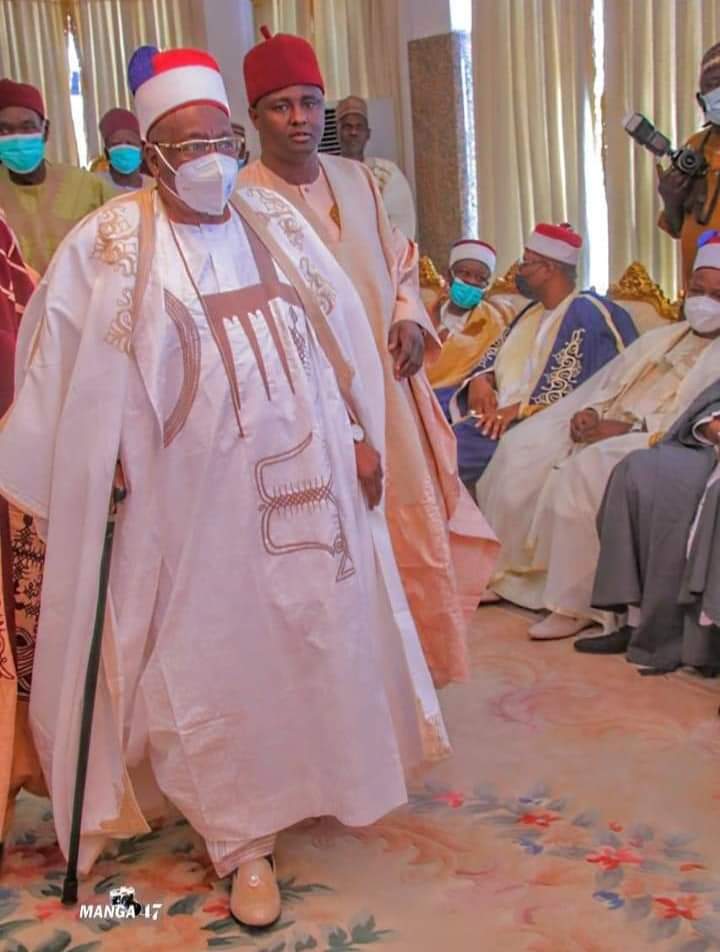
By Eric Teniola
The pick on Senator Kashim Shettima Mustapha (56), a Kanuri, as APC’s Presidential running mate has put spotlight on the Kanuris again. We know the Kanuris as dogged fighters.
We know the Kanuris as dogged fighters
In the first Republic, six prominent Kanuris were identified as flag bearers. They are Sir Kashim Ibrahim (1910-1990), Alhaji Zaana Bukar Suloma Dipcharima (1917-1969), Alhaji Waziri Kolo Ibrahim ((26 February 1926 – 1992), Alhaji Shettima Ali Monguno (1926-8 July 2016) and Alhaji Ibrahim Imam(1916-April 1980).
Alhaji Kashim Ibrahim rose to become the governor of Northern Region in 1962. Although he was not as powerful as late Minister of Defence, Alhaji Muhammadu Ribadu (1910-1965) or Alhaji Aliyu Makama Bida (1905-1980) or even Alhaji Isa Keita (1912-1994) but he was loyal to the end to the late Premier of Northern Nigeria, Sir Ahmadu Bello (12 June 1910- 15 January 1966), the Sardauna of Sokoto.
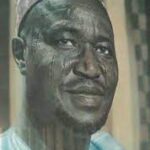
Lare. Alhaji Kashim Ibrahim
Shettima Kashim, as he was always known then, naturally became one of the most prominent Northern Region politicians. Among the founders of the Northern Peoples Congress (NPC), he was elected to the Northern Region House of Assembly in 1951 and from there to the Federal House of Representatives, where he served from 1952 to 1955; later he was in the Federal Senate. He was Federal Minister of Social Services in 1952-1953, and Federal Minister of Education from 1953-1955. In 1955 he joined Sir Ahmadu Bello’s Northern Region Government in Kaduna as Minister of Social Welfare, Cooperatives, and Surveys.
In 1956, however, he returned to Maiduguri to assume the traditional office of Waziri (prime minister) under the Shehu. He carried out very necessary reforms in the traditional local government. He was chairman of the Provisional Council of Ahmadu Bello University, Zaria, for the two years before the new university opened in 1962.
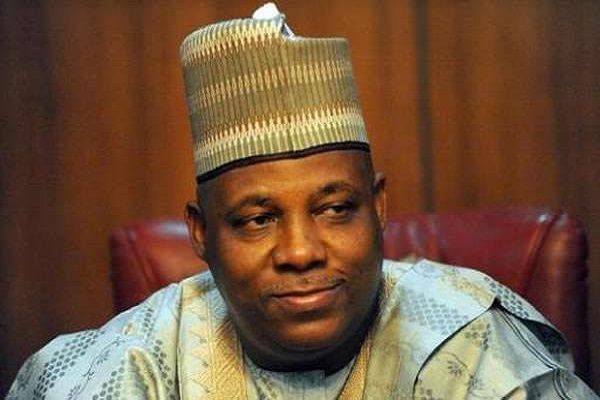
Kashim Shettima, Former Governor, Borno State
In 1962, he was appointed the first Governor of the Northern Region. He was knighted by the Queen of England the same year. Though greatly respected, he had no real power in that post in the last years of Sir Ahmadu Bello’s rule over the Northern Region. When that rule was ended with the killing of the Premier in the first coup of January 15, 1966, Sir Kashim was briefly arrested. On his release he was appointed Adviser to the Military Governor of the Region, Lt-Colonel Hassan Usman Katsina (31 March 1933-24 July 1995) which however was soon afterwards abolished with the creation of states in 1967-1968.
Sir Kashim Ibrahim served as Chancellor of the University of Ibadan from 1966 to 1977, and then as Chancellor of the University of Lagos from 1977 to 1984. He did not return to politics. He acquired little material wealth and had to sue for his pension as former Governor of the Northern Region. When he died on 25 July, 1990 his reputation was shown by the great gathering at his funeral in Maiduguri, and by the appointment of his son, an architect, as Shettima of Borno soon afterwards. He is remembered as an ardent educationist who in spite of his strong traditional upbringing clearly perceived and promoted the values and virtues of modern education.
Alhaji Ibrahim Imam was the secretary of the Northern People’s Congress and later became a patron of the Borno Youth Movement. He was elected into the Northern House of Assembly in 1961, representing a Tiv district. Prior to his election in 1961, he had represented his district of Yerwa in 1951 after supporting a strike of Native Administration workers. He was born in 1916 into an aristocratic family and his half-brother was the district head of Yerwa. He attended Katsina College and after completing his studies joined the Borno Native Administration as an assistant and later became the supervisor of works in 1950.
The Kanuris are mostly found in Chad, Cameroun, Niger Republic and in Yobe and Borno states.
While working as an engineering assistant for the Borno Native Authority, he entered the political arena as the founder of the Borno Youth Improvement Association in 1949. In 1951, he contested and won a seat to the House of Assembly defeating Waziri Mohammed. A year later at the inception of the Northern People’s Congress, which later became the dominant party in the region, he was nominated as the party’s secretary-general; he joined a large number of his colleagues from the regional house who enlisted on the political platform of the new NPC. As the general secretary of NPC, he became one of the party’s prominent campaigners and was involved in political tours, traveling for thousands of miles while providing support for the extension of the party through the establishment of branches in various towns and cities in the region.
After leaving the Native Authority, he became a building contractor to supplement his income as an honourable member of the House.
In 1954, however, Imam resigned his position from NPC and left the party, citing the lack of a revolutionary platform for political reform of the local government in the north and also NPC’s movement towards a reactionary and imperialistic political union. A year later, he joined Aminu Kano‘s Northern Elements Progressive Union and in 1956, he became the patron of the Borno Youth Movement, a young organization that had grown out of its member’s disappointment with the native authority in Borno and the scandal of Waziri, Mohammed. In 1956, he encouraged a fruitful alliance of the movement with NEPU particularly in Borno where the alliance later won two regional seats. But in a few years, Imam an ambitious politician was in need of resources to organize the alliance in Bornu and in the Northern region left the merger due to the inability of NEPU to contribute enough resources to strengthen the party in the region. He left NEPU and established an alliance with the Action Group of Chief Obafemi Awolowo (6 March 1909- 9 May 1987) and later became the leader of opposition in the regional House of Assembly.
Alhaji Shettima Ali Monguno, CFR (1926 – 8 July 2016), was Member of Parliarment. in 1959, education secretary and councilor for education, works and social welfare Borno, local Government 1959-65. Federal Minister for Air Force and internal affair 1965-66, Federal Commissioner for Trade and Industries;1967-71 Minister Mines and Power, Petroleum and Energy 1972-75.
Shettima Ali Monguno was also President, OPEC, 1972/1973 and a Presidential Candidate during the Option A4 Elections in the early 1990s in Nigeria.
In politics, Alhaji Ibrahim Waziri was initially a member of NEPU; he organized the Damaturu branch of the association in 1950 and was the branch chairman in 1951. However, towards the end of the 1950s, Waziri joined NPC and was appointed the Federal Minister of Health in 1958. In 1960, he was part of the Nigerian delegation to the United Nations when the country was accepted as the 99th member of the organization. In 1962, as minister for Economic Development, he presented to the Nigerian Parliament an ambitious capital expenditure budget over a six-year span based on a projected 4% annual growth in GDP and investment of resources in productive projects to foster development. Among the major planks of the budget, was the development of the Kainji Dam. However, close to half of the capital expenditure resource was to be obtained through foreign aid.
In 1962, Nigeria conducted a controversial census that was rejected by political leaders from the Eastern and Western region; the office of the census officer was under Waziri’s ministry. Accusations of over counting were made on all sides, with Waziri accusing the Eastern region of inflating population figures while the southern leaders labelled the Northern head count as over-inflated. The controversy generated by the head count led the cancellation of the census results and official figures were never publicly acknowledged.
After the military coup of 1966, Waziri went into private business. During the Nigerian Civil War, he was involved in arms dealing and consultancy and afterwards, he established a defence consultancy firm. Waziri established a group of companies under the corporate name Herwa which included a tin mining venture in Jos and a soap and flour mill in Maiduguri. He opened a 5 million naira Herwa clinic in Kano. He was the father to Khadija Bukar Abba Ibrahim (55). In 2016, she was made the Minister of State for Foreign Affairs by President Muhammadu Buhari. In October 2018 she defeated her step son to clinch the ticket of her party to run for Federal House of Representatives.
Alhaji Dipcharima Zanna Bukar Suloma was born in 1917 in Dipcharima village in the Borno Province of northern Nigeria. Dipcharima attended the Maiduguri Middle School and later trained as a teacher at the Katsina Higher Training College, the former Northern Nigeria’s highest institution of learning at the time. He began his teaching in 1938, working at various schools until 1946 when he embarked on a political career. He first joined the National Council of Nigeria and Cameroon (NCNC) being led by Dr. Nnamdi Benjamin Azikiwe, GCFR (16 November 1904 – 11 May 1996) and was in the party’s delegation to Britain in 1947. He left the NCNC to become a manager for John Holt. Dipcharima reentered politics in 1954, this time as a member of the Northern People’s Congress (NPC) on whose platform he was elected to the Borno Native Authority. An extremely popular politician, Dipcharima soon rose to become president of the Borno Province branch of the NPC and head of the Yerwa District in 1956, taking the traditional title of Zana.
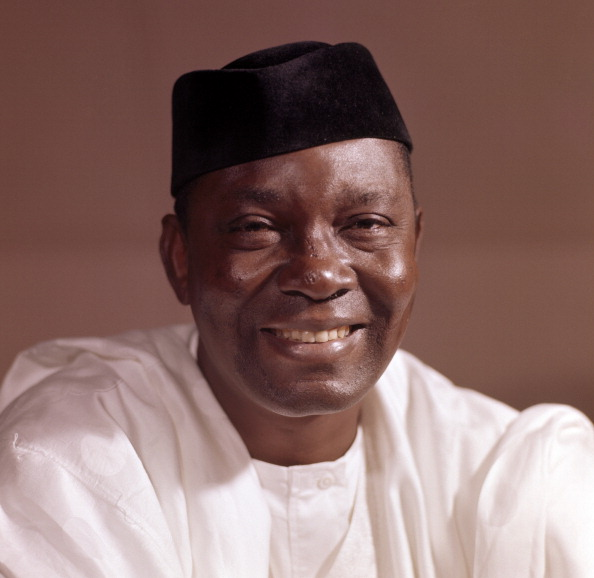
Late Dr. Nnamdi Azikiwe
He won a seat in the Federal House of Representatives in Lagos in 1954 and was Parliamentary Secretary in the Ministry of Transport. In 1957, he became Minister of State without Portfolio and later Minister of Commerce and Industry, before taking the portfolio of Transport in 1964. Dipcharima was holding this office when the federal civilian government was overthrown in the military coup of 15 January 1966; he made the headlines when, in the absence of the abducted Prime Minister Sir Abubakar Tafawa Balewa (December 1912 – 15 January 1966) , he presided over the Cabinet that handed power to General Johnson Thomas Umunnakwe Aguiyi–Ironsi (3 March 1924 – 29 . Dipcharima died in an air accident in 1969.
There are other prominent Kanuris who equally flew the flag for the Kanuris. They include Air Marshall Al-Amin Daggash, Alhaji Kam Salem, Engineer Bunu Sheriff, Senator Ali Modu Sheriff, Major General Abba Kyari(rtd.), Alhaji Abba Habeeb, Alhaji Mohammed Goni, Brigadier Zakariya Maimalari, Colonel Kur Mohammed, Lt-Colonel Abogo Largema, Hajiya Ammuna Ali, Alhaji Goni Aji, Dr. Baba-kura Kaigama, Dr. Buka Shaib, Professor Nuhu Alkali, General Sani Abacha. Even in Niger Republic, the former Prime Minister of that country Mamane Oumarou and the former President of Niger, Tandja Mamadou are both Kanuris.
We also have Major General Mohammed Shuwa(1 September 1939-2 November 2012), Professor Mujammed Mala Daura, Professor Babagana Umaru Zulum, Amina Dawaram(Singer), Alhaji Modu Gobama, Alhaji Yusuf Saida (Chemist)Alhaji Garba Daya, Alhaji Umar Ali Adamkolo, Alhaji Ahmadu Ngariya, Alhaji Bukar Koo Muhammad, Alhaji Zannah Ali Yirima, Alhaji Baba Shehu Abubakar Garbai, Galadima Mai Duboma, Alhaji Shuwa Mamman, Dr. Gona Abdullahi, Ambassador Baba Ahmad Jidah, Alhaji Muhammad Aliyu, Sheikh Abubakar El Miskin, Professor Muhammad Waziri, Mohammed Shettima Kubari, Alhaji Imam Ahmad, Shehu Umar Ibn Muhammad, late Shehu Sunda Kyanmi, Alhaji Ibrahim Maina Damcida, Abba Ali Monguno, Bunu Ngamdu, Buba Ahmad Talib, Bukar Bolori, Ambassador Abba Ahmed Zoro, Mustapha P. Jango, Alhaji Bukarr Kuya Monguno, Sheikh Dahiru Bauchi, Sheihk Awad, Alhaji Modu Tela, Asheik Jarma, Maina Maaji Lawan, Alhaji Mala Kachalla, Alhaji Abba Kyari, late Chief of Staff to the President, Alhaji Ibrahim Talba, Alhaji Buba Galadima, Alhaji Adamu Ciroma, Alhaji Liman Ciroma, General Alkali Idris, Garuba Talba Adamu, Adamu Waziri, and many too numerous to mention.
The Kanuris are mostly found in Chad, Cameroun, Niger Republic and in Yobe and Borno states.
The greatest gift God gave to the Kanuris is Lake Chad.
After the Hausas, Yorubas, Igbos and Fulanis, the Kanuris, in terms of population are in the same bracket with the Ibibios, Tivs, Ijaws and Igalas. The greatest gift God gave to the Kanuris is Lake Chad. Their wish and prayers over the years is that oil be found in Lake Chad. Unfortunately, Lake Chad once a source of livelihood for over thirty million has shrunk by ninety percent since the 1960s.
Lake Chad is shrinking while the population is exploding, hence part of the emergence of Boko Haram today.
The Kanuris are extremely proud of their heritage like the Binis. Some of them are tall with tribal marks. They are warriors. They constituted the El Kanemi Empire and that empire was comparable with the Bini Kingdom, the Oyo Empire, the Ashanti Empire, Mali empire, Songhai empire and the Sokoto kingdom. In the past the El Kanemi Empire produced outstanding leaders like Gwoni Muktar, Muhammed el Amin el Kanemi, Mai Dunma, Mai Ibrahim, Abul Bukar and Shehu Umar.
Lake Chad is shrinking while the population is exploding, hence part of the emergence of Boko Haram today
The El Kanemi Empire fell because of internal rivalry in 1893. In that year, Rabeh with a well-trained and disciplined force invaded Bornu. Ealier, as the Mahdist state expanded along the Nile , he had marched west and defeated the state of Wadai— Bornu’s great rival—for the control of the Lake Chad region. Then in 1893, Bornu an easy prey to Rabeh as the Bornu army fled before his rifle-armed troops. The Bornu capital Kukawa was ravaged and burnt down.
Rabeh established a new capital at Dikwa and took over the government of the kingdom. He left local rulers in charge of their various districts but they were made subordinate to his own officers. He carried out some reform of the public treasury, erected good buildings and stocked large quantities of food for future campaigns.
Rabeh’s rule was however short-lived. His reign fell within the period when the European scramble for and partition of Africa was at its climax. Rabeh’s main preoccupation therefore was to organize united resistance against European penetration. But his appeal for a joint jihad against European advance received no response either from the Sokoto caliphate which he had alienated by co-operating with a pretender to the Sokoto Sultanate or from Wadai which he had antagonized by his seizure of Baghirmi.
Thus, in 1900, Rabeh was defeated and killed by the French who were scrambling with the British and the Germans for the part of Africa. The ancient Bornu Kingdom was eventually partitioned between Britain, France and Germany, and today parts of it are found in the modern states of Niger, Chad, Cameroun and Nigeria but the Bornu kingdom survived to be part of Northern Nigeria.
On May 27, 1967, General Yakubu Gowon (87) created North Eastern state along with Kano, Mid West, Lagos, Kaduna, Kwara, Cross River, Rivers, Benue/Plateau, East Central, Kaduna, Western and North Western state.
The creation of North Eastern state by General Yakubu Gowon GCFR in 1967 was the greatest human gift given to the Kanuris. With that action, the Kanuris were able to cut off complete reliance on Kaduna. The Kanuris had an advantage here. The federal Permanent Secretary who headed the committee on creation of states by General Gowon was a Kanuri—Ibrahim Maina Damcida(May 15, 1933- June 12, 2012). Alhaji Damcida was born on the 15 May 1933, in Biu, Borno state. He had his education at the Westminster College, London, UK, 1954-1956;North-Western Polytechnic, London, UK, 1956-1958;Economic Development Institute of the World Bank, Washington DC, USA,1965; trainee Manager, John Holt, 1951-1953, accountant, Ministry of Trade and Industries, former Northern Region, 1959-1961, deputy Permanent Secretary Federal Ministry of Commerce and Industries, 1962-1965, Permanent Secretary, Federal Ministry of Trade, 1966-1971, Ministry of Defence, 1971-1975.
General Gowon, GCFR, appointed Brigadier Musa Usman(1940-1991), son of a Kanuri soldier, Usman Karagiwa, who fought in the Burma war and whose mother was Igala as governor of the new state. Brigadier Usman who served as Governor between 1967 and 1975 later handed over to Colonel Muhammadu Buhari GCFR in 1975.
When General Gowon GCFR, created the north eastern state, he did not name Maiduguri as the capital of the state; he gave that assignment to Brigadier Musa Usman.
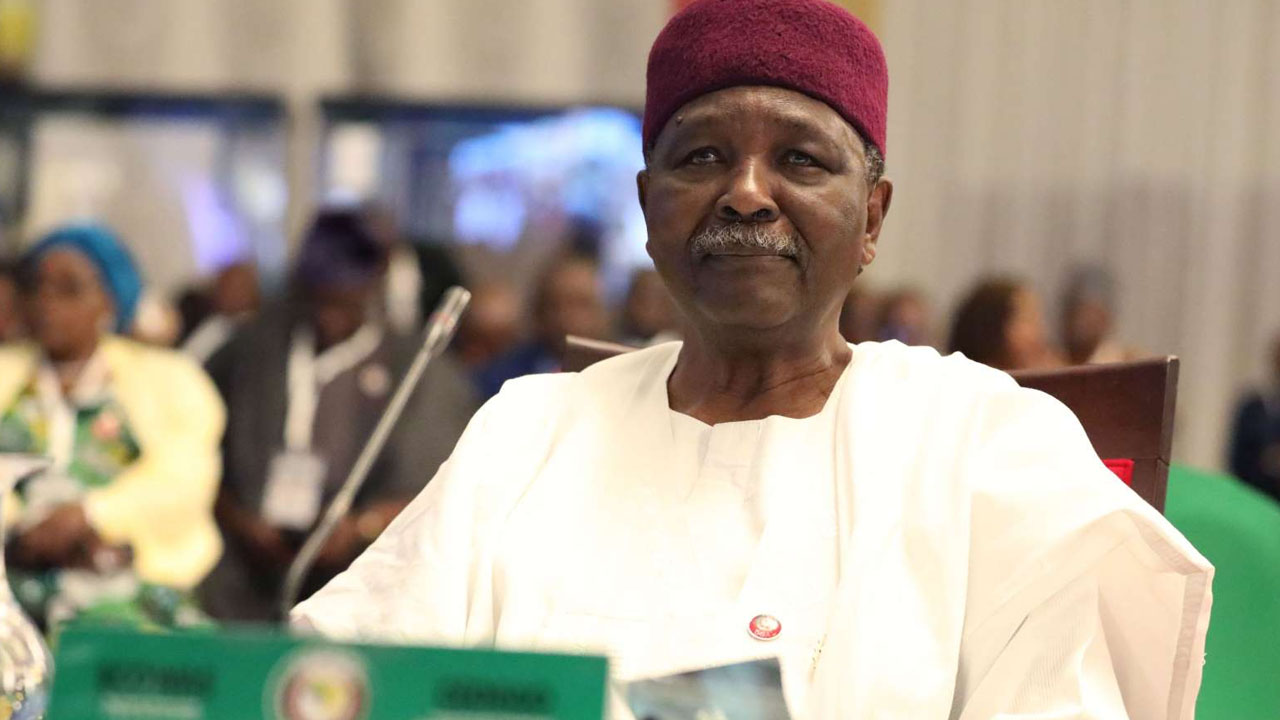
General Yakubu Gowon (rtd)
At that time, the state comprised of four provisional headquarters namely Bauchi, Maiduguri, Mubi and Yola. Upon his arrival to the state, Brigadier Usman then set up a committee to find a suitable capital for the new state.
At a subsequent meeting of the indigenes of the State the position was fully explained. It was then decided that there was no alternative but that one of the existing provincial headquarters must be selected as the State’s permanent capital. Having regard to the basic necessities that are required in any capital of a state the committee unanimously agreed on the following criteria for selecting one of the four provincial headquarters to be the state capital:- Maximum availability of housing facilities; Maximum availability of communication, i.e., roads, rail, airport and telecommunication; and Maximum availability of water and electricity supply.
The committee then advised the Military Governor to appoint a body of experts to carry on with the exercise of selecting a state capital using the
above criteria as their terms of reference. The Military Governor accepted the above advice and, in order to achieve maximum fairness and neutrality, appointed the following experts all of whom are non-indigenes of the state:- Mr F. Fraser of the United Africa Company (Chairman);Mallam M. T. Usman, Chief Civil Engineer, Ministry of Works, Kaduna (Member);
(iii) Dr M. Shamsuddin of the World Health Organisation (Member).
The committee was served by Mallam Yahaya Abubakar of the Ministry of Education, Kaduna as Secretary. Mallam Yahaya Abubakar later became Permanent Secretary, Cabinet Office, Lagos.
In addition to the criteria as terms of reference the experts felt that it was necessary, for the purpose of completeness, to include issues of health and commercial and industrial considerations in the exercise,
In the course of carrying out their assignment the experts studied documents for facts and figures and visited all the four provincial headquarters, namely, Bauchi, Maiduguri, Mubi and Yola. After carefully considering the facts and figures the experts came to the conclusion that Maiduguri was the best suited for state capital and recommended accordingly.
The Kanuris no doubt fought hard to make sure Maiduguri was the state capital
At an early stage of the exercise one of these ad hoc committees recommended that a central and virgin place, like Dadin Kowa or Buni, should be the site for the state capital. This was because for sectional reasons the committee failed to agree on any of the provincial headquarters. The Military Governor considered this recommendation and, after discussion with the authorities concerned including those of the Federal Military Government, found that it was impossible to implement. On the question of finance alone he was made to under-
stand that it would take many years before the North-Eastern State could afford
the money with which to build such a capital.
On 18th March, 1968, Brigadier Usman accepted the experts’ recommendation and selected Maiduguri as the permanent capital of the State.
The Kanuris no doubt fought hard to make sure Maiduguri was the state capital. Top Kanuris that fought hard to make Maiduguri the state capital include Kashim Ibrahim, a famous business man, Alhaji Mai Deribe, who died on March 13, 2002 and Alhaji Musa Daggash, a top civil servant at that time. He used all his contacts in government to make sure Maiduguri was made the state capital.
Alhaji Musa Daggash attended Higher College, Katsina, 1934-1938, University of Oxford, England, 1950-1951, University of Manchester, England, 1960-1961; joined Department of Forestry, 1938-1959, Permanent Secretary, Federal Ministry of Mines and Power, Permanent Secretary, Federal Ministry of Transport, Permanent Secretary, Federal Ministry of Defence, retired, 1969, later chairman Defence Industries Corporation, General Manager, Chad Basin Development Authority, member, Constituent Assembly, 1977-1978, and Commissioner, Local Government Service Board, Borno State, 1978. Alhaji Daggash was a detribalised Nigerian; his best friend was Chief Amusa Matthew Tiamiyu, a top civil servant from Iperu in Ogun state.
Borno state became a state out of North East on February 3, 1976 following the directive of General Murtala Ramat Mohammed (8 November 1938 – 13 February 1976), ten days before he was assassinated. He created Borno, Bauchi and Gongola out of North Eastern state.
Borno State has been inhabited for years by various ethnic groups, including the Dghwede, Glavda, Guduf, Laamang, Mafa and Mandara in the central region; the Afade, Yedina (Buduma), and Kanembu in the extreme northeast; the Waja in the extreme south; and the Kyibaku, Kamwe, Kilba, Margi groups and Babur in the south while the Kanuri and Shuwa Arabs live throughout the state’s north and centre.
On September 20, 1978, General Olusegun Obasanjo GCFR lifted the ban on political activities. Less than twenty-four hours after, Chief Obafemi Awolowo (6 March 1909- 9 May 1987) launched his Unity Party Of Nigeria, whose cardinal Programme was free education at all level, etc.
A new party was however formed on September 22, 1978. Called the Nigerian People’s Party, it is a fusion of three groups. The groups are the National Union Council, Club 19 and the Council for National Unity and Progress. Although the party has not picked a leader, Alhaji Waziri Ibrahim read a written statement to reporters at the launching ceremony at 8, Ojuelegba Street, Surulere- the party’s offices. “We of the Nigerian People’s Party offer our services to this country in the firm belief that programme will fulfil the hopes and aspirations of our people”.
Alhaji Ibrahim listed the aims and objectives of the party as to promote and sustain the unity of Nigeria and uphold her territorial integrity, to work for the integration and equality of the peoples of Nigeria without regard to ethnic affiliation, religion or sex, to work for equal opportunity for all Nigerians to participate in every aspect of national life and to promote political, social and economic equality of all sections of Nigeria, to work for full employment of Nigeria’s manpower and natural resources with a view to building a self-reliant economy, to promote the just and equitable distribution of the fruits of economic development among persons and states of Nigeria, to work towards free and high quality education at all levels and to work for a secular state which upholds democracy, the rule of law and freedom of worship.
The party believes that ultimate power belongs to the people and in respect for the sanctity of human life. It also believes that every state in the Federation”shall enjoy the same and enjoy the same and equal status and opportunity as well as in the principle of creation of more states in the country. He announced that the party “is open to every Nigeria citizen” and added that “this is a momentous opportunity to usher in a new era of hope, stability and progress.”
The written statement distributed at the launching ceremony by Chief Mo Obiekwe, my friend, had 42 names and their states of origin. The names listed included Mr Solomon Lar-Plateau, Mr. Matthew Tawo Mbu-Cross River, Chief J. Edewor-Bendel, Alhaji Yusufu Dan Tsoho-Kaduna, Chief Adeniran Ogunsanya- Lagos, Dr. Obi Wali-Rivers and Mr Joe Asogwa-Anambra. Others include Alhaji Ado Ibrahim-Kano, Dr Ben Nzeribe-Imo, Alhaji Megida Lawal-Kwara, Chief Theophilus Benson-Lagos, Chief Basil Okwu-Anambra, Mr Paul Unongo-Benue, Dr. Omo Omoruyi- Bendel, Chief Kolawole Balogun-Oyo, Mr Sam Mbakwe-Imo, Chief Olu Akinfosile-Ondo, Chief Samuel Onitiri-Lagos and Alhaji Jafaru Mango-Borno.
A few days later the NPP broke up. The breakup was not caused by political ideology but by Presidential ambition. The Zikists in the NPP especially Chief Adeniran Ogunsanya, Chief Olu Akifosile, Chief Raphael Ben Keshi Okafor alias Nwanmadu and others wanted Dr Nnamdi Azikiwe to be the Presidential candidate of the party.
On the other hand, Alhaji Waziri Ibrahim, having invested so much in the party, wanted the Presidential ticket of the party. In the end, he opted out and formed his own party, the Great Nigeria People’s Party, GNPP.
Alhaji Waziri Ibrahim played the card of regionalism and concentrated his efforts on Gongola and Borno state. He had followership in the Cross River state thanks to Chief Matthew Tawo Mbu (20 November 1929-6 February 2012) from Okundi in Cross River state.
Chief Obiekwe told me later that they wanted Dr. Azikiwe to be the Presidential candidate so as to secure the Igbo votes for Chief Jim Ifeanyichukwu Nwobodo (82) to be the governor of Anambra state and Chief Samuel Onunaka Mbakwe (1929-2004) from Avutu, Etiti to be governor in Imo state.
In the 1979 general election, the GNPP had eight senators–Alhaji Idrisa Kadi, Mr Bukar Sanda, Mr Jafaru Manga and Mr Umaru Lawan Barma(Borno), Mr George Daniel and Prince Joseph Ansa (Cross River), Pastor Luka Zanyasing, Mr Bitrus B. Kajal and Alhaji Mahmud Waziri(Gongola state).
In the House of Representatives election, the GNPP had forty-four seats, twenty-two in Borno, one in Bauchi, eight in Gongola, four in Cross River, one in Kaduna, one in Kwara and six in Sokoto.
In the Presidential election, Alhaji Ibrahim Waziri scored 1,686,489 votes out of a total of 16, 846,633 votes. Those elected on the platform of GNPP for the House of Representatives were Alhaji Abba Ali(Bama), M. Bulama Ali(Fune), Ibrahim M. Ali(Maiduguri), Alhaji Gambo(Gujba), Omar Bukar(Ngala East), Alhaji Muhammadu Dagari(Nguru Central), Alhaji Kachalla Damaturu(Damaturu), M. Barde Gadaka(Fika South), , Alhaji Jidda Haruna(Munguno), Mohammed Zanna Waziri Juggal(Dambo’a), Alhaji Sanda Konduga(Konduga), Tijani Lawan(Ngala West), Umar Lawan(Miaduguri), Bukar Limambe(Kukawa North-West), Maina Ma’aji(Kukawa South-East), Audu Mbicho(Gwoza), M. Bukar Mele(Matchina), Paul K.D. Mshelia(Biu South), Hamza M. Nganjiwa(Biu North), Lawal Omar(Kaga), A.A. Suleiman(Bade), Alhaji Idrissa Madi Tikau(Fika North), Agwana Apagu Waba(Askira Uba) and Kolo Lawan Yusuf(Geidam North).
In the Presidential election held on June 12, 1993, Alhaji Baba Gana Kingigbe (77), a Kanuri, my former boss, was elected as the running mate of Chief Moshood Kashimawo Olawale Abiola GCFR (24 August 1937- 7 July 1998) and the duo were believed to have won that election.
I have personally worked with many Kanuris in the central government including Dr. Buka Usman, Dr Kaigama, who were both Permanent Secretaries in the central government at that time. There are other notable Kanuris whom I have not captured in this piece and who have rendered notable services to this country.
General Sani Abacha GCFR (20 September 1943- 8 June 1998) and Alhaji Bashir Tofa (20 June 1947- 3 January 2022) are both Kanuris. General Sani Abacha ruled Nigeria from 17 November, 1993- 8 June 1998) while Alhaji Tofa was the Presidential candidate of the National Republican Convention (NRC) in the June 12, 1993 presidential election.
Alhaji Bashir Tofa’s running mate was Dr. Sylvester Uzor Ugoh from Umuokrika, Imo State. He was born on April 20, 1931, in Umuokrika, Imo State. He had his education at the Family College, Abak, 1947-1951, University of New Hampshire, Durham, New Hampshire, USA, 1955-1959, Harvard University, Cambridge, Massachusetts, USA, 1959-1961, 1963-1964; Lecturer, University of Nigeria, Nsukka, 1961-1966, deputy Director, Economic Development Institute , University of Nigeria, 1966-1972, executive Director, SKOUP and Company( Management Consultants), 1973, member, Constituent Assembly, 1977-1978, Minister of Science and Technology, 1979-1982.
In retrospect, it was in June 12, 1993 Presidential Election, that the spotlight was more on the Kanuris than at any period. Both the Presidential Candidate of the NRC, Alhaji Tofa and the running mate of the SDP, Alhaji Baba Gana Kingigbe were both Kanuris. Incidentally, thirty years after the annulment of that election, another Presidential election will, hopefully, hold next February, with a Kanuri as running mate again.
The Insight Report
Nigeria Coverage

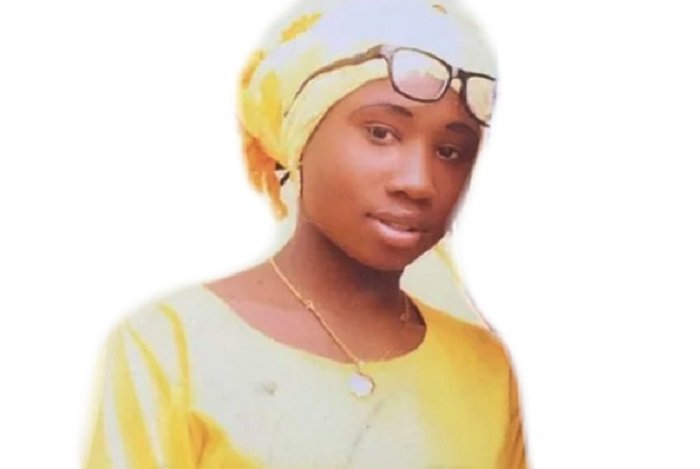
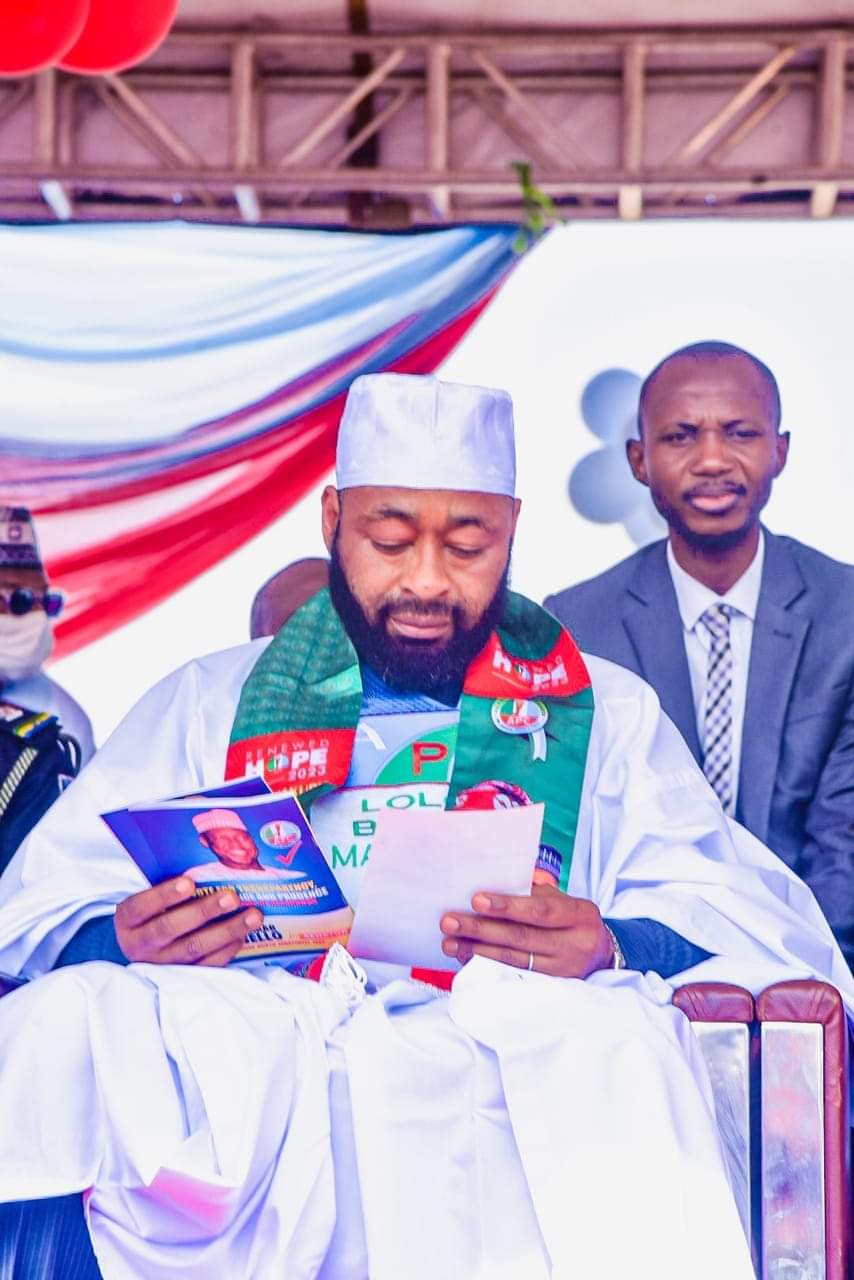
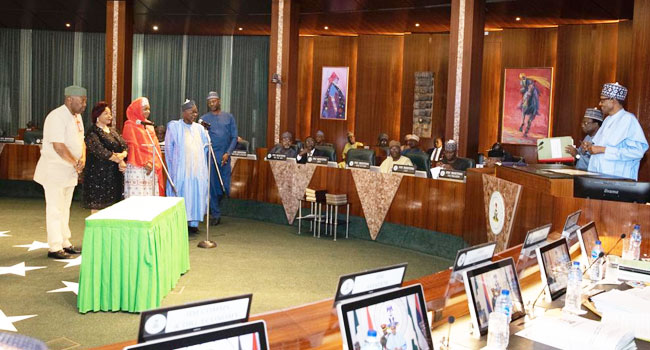
One Comment